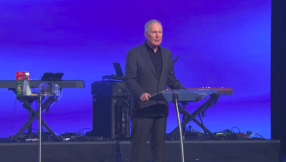Christians see some benefit in David Cameronâs wellbeing index
The Prime Minister announced yesterday that from next April the Government would be measuring how much the lives of British people are improving “not just by our standard of living, but by our quality of life".
His plan for a wellbeing index has come under fire from critics who have already written it off as “airy fairy and impractical”, and little more than a guise for of harsh cuts to reduce Britain’s budget deficit.
However, the cynicism is not shared by everyone. Emrys Jones, of Care for the Family, said the index could give a clear indication of what matters most to people and enable the Government to prioritise areas that impact most strongly on people’s happiness levels.
“Economic growth is vital, as without jobs people can struggle to take care of their families, but it’s also important to consider our wellbeing as a nation and identify what makes us truly happy, such as investing more quality time in our families,” he said.
Cautious support also came in from the Mothers' Union. Its chief executive, Reg Bailey said: “The Mothers' Union thinks life is more important than economic prosperity. Wellbeing and a sense of fulfilment are terribly important to us and the whole of society."
The Office for National Statistics has already begun drawing up the questions, set to be posed to 200,000 families next year, and has opened a consultation with the public to help devise the most accurate measures of wellbeing.
Some of the questions in the final survey are likely to look at job satisfaction, people’s connections with their friends and relatives, and health.
Nigel Adams, director of HOPE Nottingham, said the idea of measuring wellbeing was good in principle and could get people thinking more about what makes them truly happy.
He has some reservations, however, about the conclusions that may be drawn once the results are in. Education was one example, he said, of something that could make a huge difference to wellbeing and yet make some people so unhappy as to drive them to the point of suicide.
“The difficulty is when we start to say that people need a certain level of income or certain material provisions to be happy,” he said.
“People just start trying to acquire what other people tell them they need in order to be happy. But wellbeing isn’t acquired through these means.
“God created us to be first and foremost recipients of his love, irrespective of what we are able to achieve for ourselves.
“A sense of fulfilment comes when we respond to God, rather than pursuing material things, and many people find huge fulfilment when they take the opportunity to serve others.”
Mr Adams said it was important that the Government does not jump the gun and “try to define the answer before knowing what that answer is”. That’s where the church could have a part to play in this, he said.
“There is a role for the church to encourage people to find out what truly brings a sense of purpose and wellbeing and for the church to be so engaged in the community that they are able to demonstrate how that wellbeing comes and that is through seeking the Kingdom of God.”













